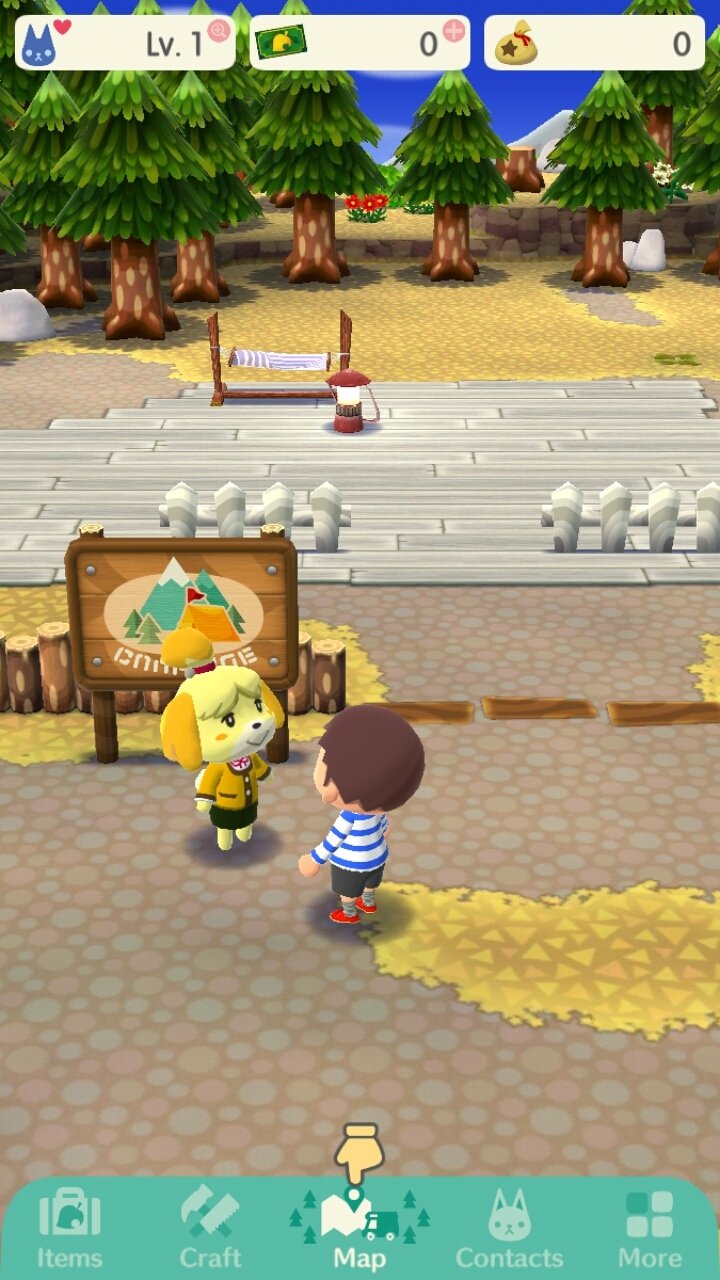

Compared to the main series games, a new currency, Leaf Tickets, are obtainable within the game or through microtransactions, which the player can use to reduce in-game timers or to craft without raw materials. The mobile game features optional microtransactions that can be purchased to improve gameplay. The player is then rewarded with furniture and clothing representative of the villager's aesthetic. Each villager has a specific relationship level that is increased by performing tasks and chatting with them each day. In lieu of the villager interaction seen in previous titles, Pocket Camp takes a complex look at the villager relationship system. Akin to previous games, the player can fish and pay off a debt on their home. Each visit increases that relationship's experience level, in a new game mechanic for the series. The player can attract specific neighbors by placing their favorite furniture at the campsite. A local craftsman, the alpaca Cyrus, turns these resources into furniture, pools, and new locations. Neighbors in nearby "recreation sites" reward the player with crafting materials for completing requests. The player's customization options extend to their avatar's gender, facial traits, and recreational vehicle abode. The player's avatar can travel to multiple locations, such as Sunburst Island or Saltwater Shores, and a marketplace that sells furniture and avatar clothing.

The player-character befriends neighboring animal characters, who can visit the player's campsite, as can other human players both invited and at random. In Pocket Camp, the player decorates a campsite in lieu of a town, and gathers materials such as wood and cotton from the surrounding area to trade for furniture orders. Animal Crossing is a series of social simulation video games in which players customize their avatars' living spaces and communities by trading materials and favors for decorative items.


 0 kommentar(er)
0 kommentar(er)
